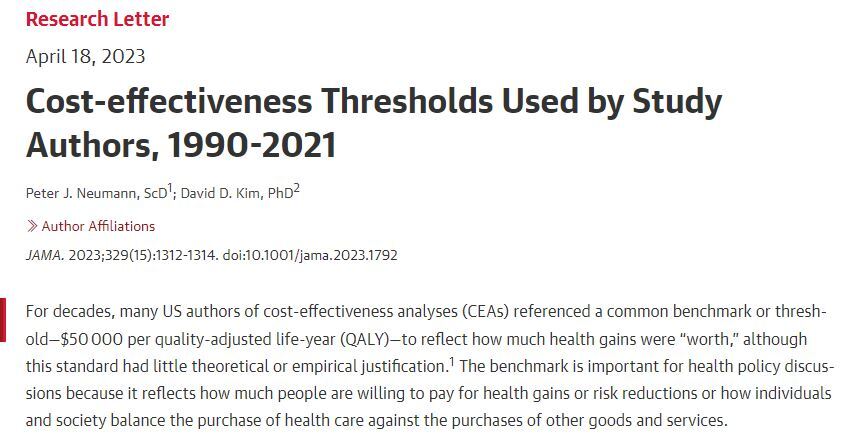Journal: Journal of the American Medical Association
Citation: Neumann PJ, Kim DD. Cost-effectiveness Thresholds Used by Study Authors, 1990-2021. JAMA. 2023;329(15):1312–1314. doi:10.1001/jama.2023.1792
For decades, many US authors of cost-effectiveness analyses (CEAs) referenced a common benchmark or threshold—$50 000 per quality-adjusted life-year (QALY)—to reflect how much health gains were “worth,” although this standard had little theoretical or empirical justification.1 The benchmark is important for health policy discussions because it reflects how much people are willing to pay for health gains or risk reductions or how individuals and society balance the purchase of health care against the purchases of other goods and services.

